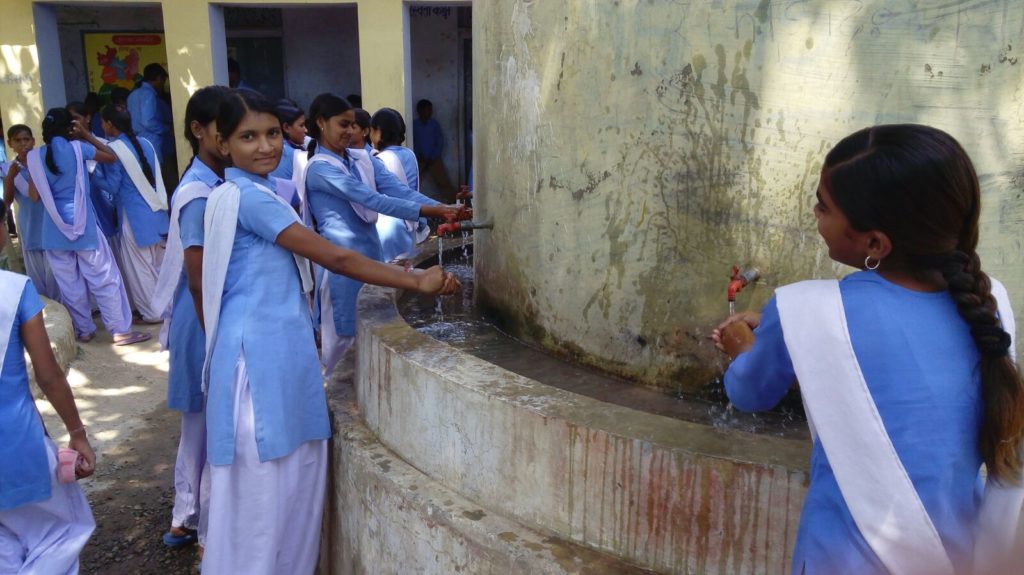Supporting education through sanitation and handwashing
July 13, 2018
Editorial note: As the High Level Political Forum convenes to understand progress towards the SDGs, we’re sharing some of the ways that Global Handwashing Partnership members are contributing to SDG 6. Today, Banka BioLoo offers a case study on collaboration to improve sanitation and handwashing in schools.
By Sanjay Banka
In India, lack of water, sanitation, and hygiene (WASH) in schools leads to absenteeism, dropouts – mostly among girl students- and spread of diseases. The Swachh Bharat Abhiyaan (Clean India Mission) program and sub-program Swachh Bharat – Swachh Vidyalaya (Clean India – Clean Schools) are working to improve WASH services and practices across India. In support of these programs, many private companies are working to improve WASH in schools.
Havells, India’s largest electrical products manufacturer, has manufacturing facilities in several parts of India. As a part of its corporate social responsibility (CSR) initiative, the company has been providing mid-day meals to improve students’ nutrition in over 650 schools since 2005. Understanding the strong links between water, sanitation, and hygiene (WASH) and nutrition, and the need for effective sanitation and in these schools, Havells partnered with Banka BioLoo to develop a WASH program in these schools. Banka BioLoo, a social enterprise with a mission to reduce open defecation and spread sustainable sanitation and hygiene, provided bioloos with onsite waste treatment and handwashing facilities. The partnership has already installed bioloos with handwashing stations in over 350 schools.

The project began in 2015, and since then more than 350 schools have received bioloo blocks. A bioloo block is comprised of toilets with bio-digester to treat the fecal sludge onsite, an overhead water tank, and wash basins. Havells and Banka BioLoo aimed to reach 50 schools per quarter, with every school having 8 bioloos (4 for girls and 4 for boys) and 2 handwashing basins (one per 4 units). The Banka BioLoo team began implementing with the active involvement of school staff, senior students, and Havells staff. To supplement the infrastructure created, awareness was to be spread around water, sanitation and hygiene, general cleanliness. Havells tied-up with McGraw-Hill Education and published a booklet that was distributed among students to promote WASH behaviors. School staff have reported that they have seen higher attendance, fewer dropouts, and very positive feedback from students.
Banka BioLoo has been implementing school WaSH projects with other large companies in other states of India, with similar outcomes. Intense involvement of all stakeholders – Havells’s officers, Banka BioLoo management and field officers, school staff and senior students – in the planning and implementation stages was a key success factor. It ensured that the bioloo blocks that were being installed were meeting the needs of the students, including adequate water facilities, a wash basin for handwashing, and accompanying WASH behavior change promotion. The added advantage was that the message of WASH was taken to the homes and the communities by these students, resulting in a multiplier effect beyond the school itself.
Photo credit: Banka BioLoo